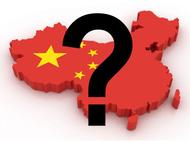Chinese Climate Leadership
- By:
- Edward A. Reid Jr.
- Posted On:
- Aug 15, 2017 at 6:52 AM
- Category
- Climate Change
Numerous recent articles have asked questions in this general form: “Will America Let China Lead the World?” These articles suggest that the US had the leadership role on climate change and that US withdrawal from the Paris Agreement will somehow cede the leadership role on climate change to China. These articles are based on highly questionable assumptions. Their primary intent, prior to the US withdrawal, was to shame the new Administration into remaining in the Agreement. Their primary intent, since the US withdrawal, is to shame the Administration into reversing its decision to withdraw.
The first questionable assumption is that the U.S. had a leadership role in climate change and the establishment of the Paris Agreement. The Rio Earth Summit, the United Nations Framework Convention on Climate Change (UNFCCC) the Intergovernmental Panel on Climate Change (IPCC) and the long series of Conferences of the Parties have all been UN activities, aided and abetted by environmental organizations and Non-Government Organizations (NGOs). While US diplomats and scientists have been involved in these activities, they have generally not been in leadership roles.
Specifically, in the case of the Paris Agreement, the US took President Obama’s preferred posture of “leading from behind”. The intent of the majority of the nations which participated in the creation of the Paris Agreement was the establishment of a treaty, which would be binding upon all of the signatory parties, both as to emissions reductions and contributions to the UN Green Climate Fund.
The US delegation was unwilling to enter into the agreement as a treaty, since President Obama was convinced that the US Senate would not ratify the Agreement as a treaty. Thus, rather than leading the effort envisioned by the Agreement, the US resisted the direction preferred by the other participants and forced compliance with the terms of the Agreement to be made voluntary as a condition of US participation. The US also insisted on the provision that nations be permitted to withdraw from the Agreement, which President Trump recently exercised.
The second questionable assumption is that China would ascend to the leadership role on climate change. China’s commitment under the Agreement with regard to emissions reductions is that China would begin reducing its CO2 emissions by about 2030, though it expressed its intent to reduce its “carbon intensity” in the interim. That could hardly be construed as a leadership position in an agreement intended to achieve reductions in CO2 emissions. China’s current primary focus is on economic development and reduction of criteria pollutant emissions (SOx, NOx, and particulates) from its existing coal power generation infrastructure, to reduce hazardous and obnoxious air pollution in its cities.
China is also a participant in the Group of 70 plus China, which is demanding funding from the UN Green Climate Fund. China has made no funding commitment to the Green Climate Fund; and, thus, is hardly in a leadership role regarding the Fund.
The third questionable assumption is that the other national participants in the Paris Agreement would accept China’s leadership, should China attempt to exert leadership within the Agreement. This is especially questionable as long as China is only committed to following along behind with regard to CO2 emissions reductions.
The fourth questionable assumption is that the UN, environmental organizations and NGOs which currently lead the climate change efforts under the Agreement would be willing to cede their leadership roles to China. These organizations all have visions of Climate Fund $ billions “dancing in their heads” and would likely be reluctant to cede control of their visions.


